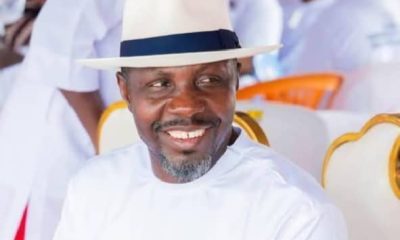Opinion
Egbesu Religion: A Sacred Covenant with the Ijaw Elohim – Revival, Dialogue, and Cultural Significance
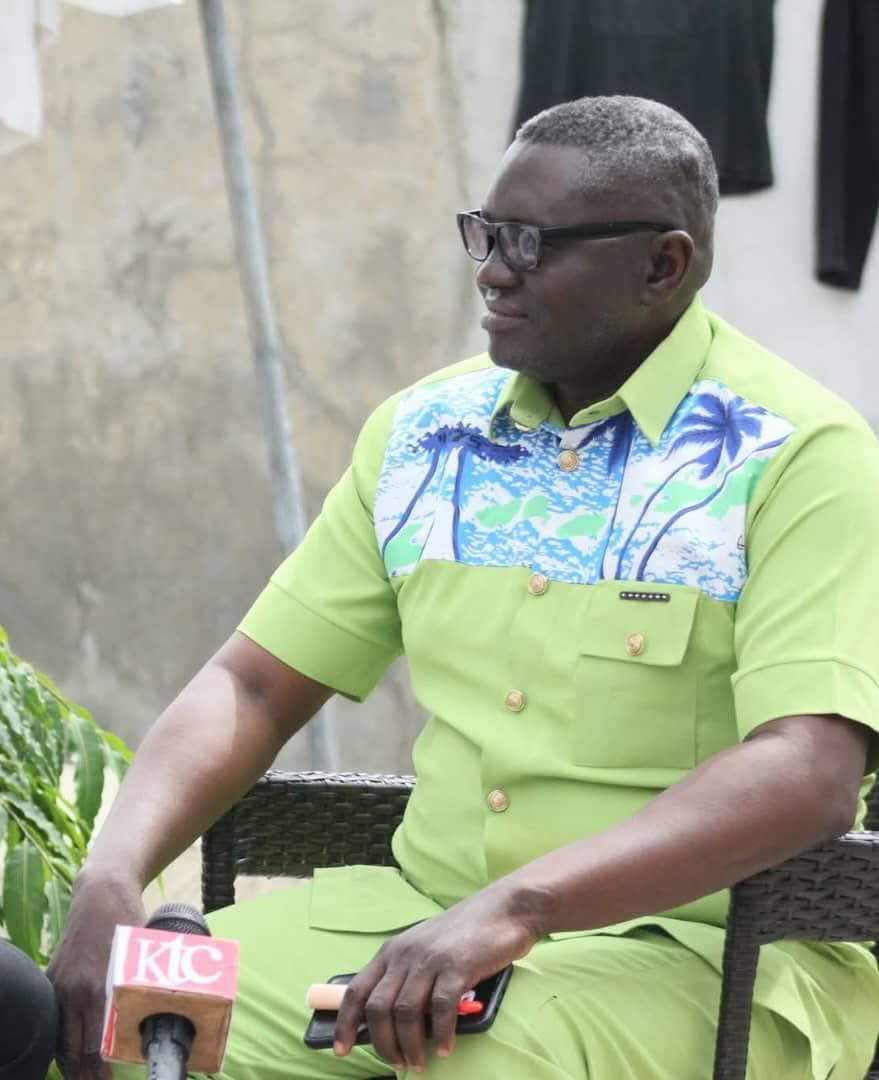
By: Prof. Benedict Binebai
Egbesu Religion: A Sacred Covenant with the Ijaw Elohim. In a moment of profound sanctity and timeless significance, the ancestors of the Ijaw people forged an enduring covenant with Egbesu, the majestic Elohim of the Ijaw planet Earth. This hallowed indigenous religion of the Ijaw, steeped in the mists of tradition and mysticism, found an epoch of unparalleled prominence in the Tompolo era. Through indefatigable efforts, Chief Dr. Government Oweizide Ekpemupolo—a former militant general turned venerable chief priest of Egbesu and kindred deities—laboured zealously not only to revive the splendour of this ancient faith but also to unfurl its essence onto the national and global stage. Amidst this renaissance, many across tribal boundaries and geographic landscapes who align themselves with Tompolo and partake in the contemplation, discourse, and practices pertaining to the Egbesu religion have been branded by others as pagans and devotees of idols, couched in eloquent yet often contentious terminology.
The narrative of Egbesu’s sacred bond with the Ijaw ancestors is one of mystical grandeur, where the Elohim Egbesu reigns as a potent symbol of justice and spiritual vigour in the Niger Delta’s cultural tapestry. Chief Ekpemupolo’s endeavours have woven a compelling narrative of revival and outreach, embedding the Egbesu religion in broader dialogues of culture and spirituality. Yet, this visibility has drawn diverse perceptions, with some viewing adherents through the lens of traditional paganism or idolatry. Developing and practising the Egbesu religion isn’t satanic, nor is it sin or idolatry. Egbesu is worshipped by Ijaw faithful as a national divinity, akin to how Indians, Chinese, and Japanese people worship their own divinities. The worship of Egbesu is deeply rooted in Ijaw spirituality, symbolising hope, freedom, and development. Criticism of Egbesu worship may stem from cultural and religious differences, lack of understanding, or historical contexts of traditional religions facing suppression or criticism.
Just as the *luminous tapestries of Hinduism* weave through the cultural fabric of India, the *ancient wisdoms of Buddhism and Taoism* cascade like mystical rivers through China’s spiritual landscape, and the *ethereal beauty of Shintoism* whispers secrets of nature to the soul of Japan. The Egbesu religion plays a vital role in Ijaw spirituality and cultural identity. Egbesu worship involves elements like rituals and symbols, emphasising Egbesu’s sacred nature in Ijaw tradition. They have their indigenous religion, which they built and protected over time. These are globally accepted religions that defer from Christian⁶ religion in terms of worship. They have different methodologies. Interestingly, Indian, Chinese, and Japanese Christians have not condemned those religions the way the Ijaws are doing to their own cultural religion. In a harmonious ballet of beliefs, these Eastern nations embrace their traditional faiths with a grace that bespeaks deep cultural reverence. Amidst the pluralistic melodies of their societies, Christians in these lands coexist with indigenous traditions in a symphony of spiritual diversity. Cultural diversity and religious freedom are fundamental aspects of human societies, contributing to the richness and complexity of global interactions. Respect for diversity, protection of rights, and cultural exchange promote peaceful coexistence and dialogue. Challenges include balancing rights and sensitivities, promoting understanding, and addressing discrimination. Examples of cultural and religious diversity include multicultural societies, interfaith dialogue, and cultural festivals showcasing diversity and promoting inclusivity.
Promoting interfaith dialogue involves fostering understanding, respect, and cooperation among people of different religious backgrounds. This can be achieved by *Encouraging Open Conversations*: creating spaces for people from different faiths to share their beliefs, practices, and values; *Focusing on Commonalities*: highlighting shared values like compassion, peace, and community service to build bridges; *Educating About Different Faiths*: learning about other religions fosters empathy and reduces misconceptions; *Organising Interfaith Events*: activities like interfaith prayers, cultural festivals, or community service projects promote unity; and *Engaging in Respectful Listening*: listening to others’ perspectives without judgement to build trust. Benefits of interfaith dialogue include promoting peace and understanding, encouraging cooperation, and enhancing cultural awareness. Challenges involve respecting differences, avoiding proselytising, and building trust gradually.
Chief Dr. Government Oweizide Ekpemupolo (Tompolo) is the spiritual overlord, playing a pivotal role in revising and revitalising the Egbesu religion. Through his indefatigable efforts, Tompolo has brought significant attention to the Egbesu religion, embedding it in broader cultural and spiritual dialogues. His work has been instrumental in the revival of the Egbesu faith among the Ijaw people.
Opinion
“Delta: Worst in Educational Institutions Distribution” – Mulade Declares as He Calls for Ijaw Inclusion
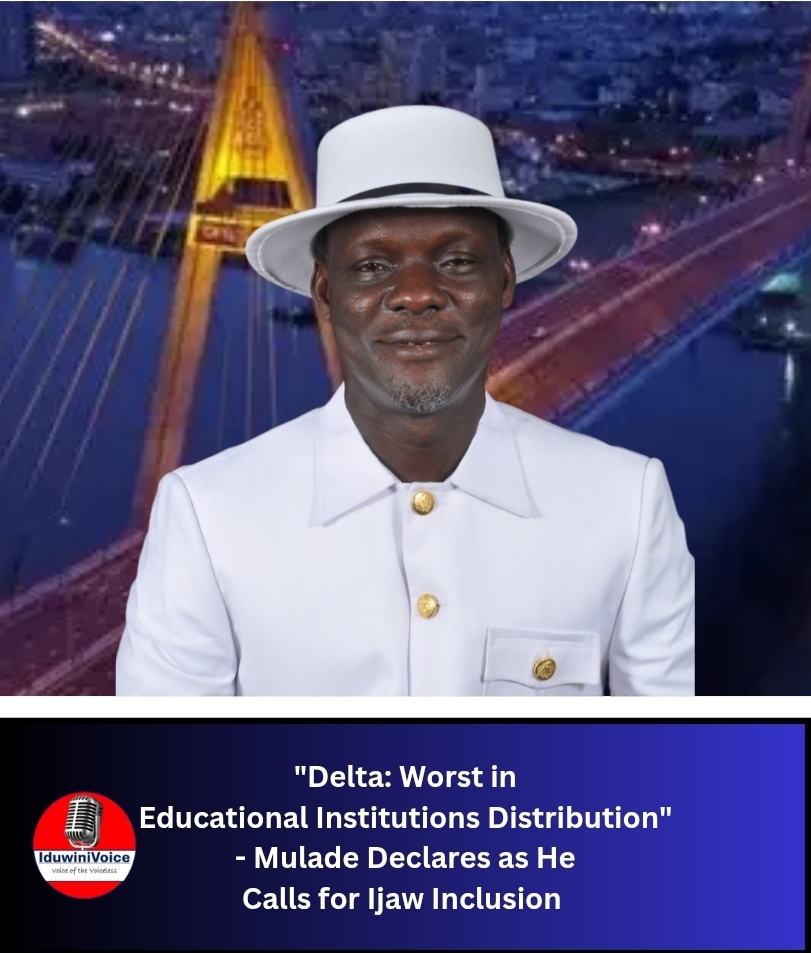
By: Favour Bibaikefie
A development Ijaw leader and development advocate, Comrade Mulade Sheriff, PhD, has accused the Delta State Government of systematic marginalisation and deliberate neglect of Ijaw communities, particularly in the area of educational development and institutional presence.
Mulade, who described the situation as “unjust, provocative and unacceptable in a democratic society,” said the continued exclusion of Ijaw areas from the siting of state-owned educational institutions represents a clear case of structural discrimination, despite the region’s enormous contribution to the economic survival of Delta State.
Dr. Mulade, “It is painful and unacceptable that a people whose land produces greater portion of wealth sustaining this state are treated as second-class citizens when it comes to development especially in the area of higher educational institutions. This is not only unfair; it is dangerous for the unity and future of Delta State.”
The Ijaw-born activist listed the existing state-owned tertiary institutions in Delta State and pointed out that almost all are concentrated outside Ijaw territories, reinforcing a long-standing pattern of exclusion as regards State-Owned Universities such as:
– Delta State University, Abraka;
– Southern Delta State University of Science and Technology, Ozoro; Southern Delta University of Science and Technology, Orerokpe Campus;
– Dennis Osadebay University, Asaba;
– University of Delta, Agbor;
– State-Owned Colleges of Education and Health Institutions:
– Federal College of Education (Technical), Asaba;
– College of Education, Edjeba Road, Warri;
– Delta State College of Physical Education, Mosogar;
– School of Midwifery, Asaba;
– State School of Nursing, Edjeba, Warri;
– College of Nursing Science, Sapele;
– Delta State-Owned Polytechnic Institutions:
– Delta State Polytechnic, Ogwashi-Uku;
– Delta State Polytechnic, Otefe-Oghara;
– Delta State Maritime Polytechnic, Burutu; (with the poorest infrastructure and lacks).
Mulade stressed that out of all these institutions, only one, the Delta State School of Marine Technology, Burutu is located in Ijaw land, a reality he described as “appalling, insulting and indefensible.”
“One institution for an entire ethnic nationality that contributes massively to Delta State’s oil wealth is not just marginalisation; it is a deliberate policy of neglect,” he declared.
The rights activists further lamented that while Ijaw communities bear the environmental burden of oil exploration including polluted rivers, destroyed farmlands and health risks, they are consistently denied the benefits of development, especially in education.
“Our youths are denied opportunities not because they lack potential, but because the government has refused to bring development to our doorsteps. This imbalance is breeding frustration, and must be corrected urgently,” Mulade warned.
The Ibe-Sorimowei of the ancient and oil-rich Gbaramatu Kingdom in Delta State, Chief Mulade Sheriff strongly appealed and called on Governor Sheriff Oborevwori to rise above politics, sentiment and take deliberate steps to correct the imbalance by prioritising the siting of new educational institutions in Ijaw areas, upgrading existing infrastructure and appoint qualified Ijaw sons and daughters as Vice-Chancellor and other principal officers in Delta educational architecture as compensation now.
“Governor Oborevwori must show that he is a governor for all Deltans, not for a select few. The Ijaw people deserve fairness, inclusion and respect. Educational development is not a favour; it is our right,” he stated.
He warned that continued neglect of Ijaw areas could deepen feelings of alienation and undermine the sense of belonging among the people.
Demand for Equity and Justice
Mulade concluded by calling on civil society groups, traditional rulers, youth organisations and stakeholders across Delta State to speak out against structural injustice and demand a more equitable distribution of development.
“This is not just an Ijaw issue; it is a justice issue. A state cannot develop sustainably when a significant part of its population is consistently excluded,” he said.
Opinion
Ijaw Nation Is Watching Delta State 2026 Budgetory Allocations – Dr. Mulade Warns
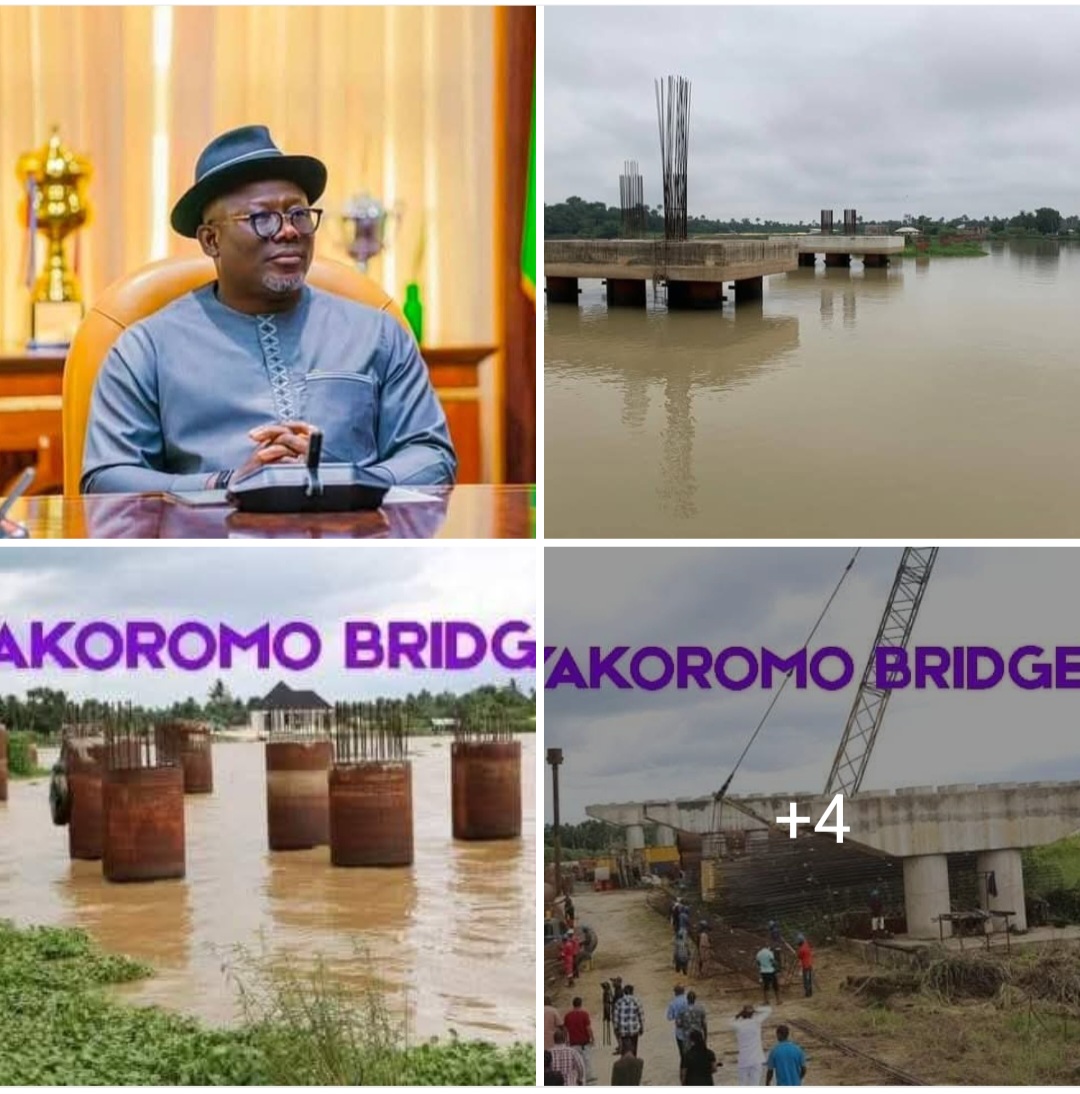
* As Group Gears Up to Endorse Governor Sheriff Oborevwori for 2027
By: Divine Perezide
Ahead of the 2027 general elections gradually inches closer, the political terain have seen a lot of endorsements at various levels. In Delta, there have been reports of a planned endorsement of governor Sheriff Oborevwori as the sole candidate by a group of Delta Ijaws. This has however, triggered reactions from many stakeholders, including a prominent Ijaw leader, peace and development advocate, Comrade (Chief) Mulade Sheriff, PhD, who has declared that Ijaw votes in 2027 would be determined by projects allocated, adequately funded to completion in the 2026 budget.
The renowned human and environmental rights activist made the declaration at a press briefing after an expanded stakeholders meeting in Warri on behalf of Ijaw Ethnic Nationality in the state.
According to the Ibe Sorimowei of the ancient Gbaramatu Kingdom, the adequate inclusion and funding of projects in the riverine areas will serve as critical consideration for political support, and riverine communities predominantly occupied by the Ijaws and Itsekiri ethnic nationalities.
While he commended the infrastructural development stride by governor Oborevwori in the upland areas, Mulade however lamented the absence of such infrastructural revolution in the riverine areas of the state despite the population density and huge revenue contributions to the state as host to multinational oil and gas companies.
He said, “I want to sincerely appreciate His Excellency, Rt. Hon. Sheriff Oborevwori, for the infrastructural development, which I described as infrastructural revolution in the state, particularly in the upland, and your proposed commissioning of the reconstructed Odimodi-Ogulagha road earlier constructed by SPDC in the 1980’s for their operational convenience and community residents.
“It is imperative to state that some Ijaw communities such as Ogulagha, Torugbene, Oporoza, Akugbene, Ojobo etc. are more densely populated than some local government headquarters in the upland, but they are deliberately deprived of development because of the so-called claim of terrain challenges.
“These communities host multinational oil and gas companies contributing immensely to the state revenue, but without any significant projects,” he lamented.
The Ibe-Sorimowei who reminded the governor of how the Ijaws adopted, supported and stood by him all through the election season, also gave the assurance of massive Ijaw votes come 2027, but one that must be backed by the governor’s commitment to development through massive projects inclusion for the area.
“We (the Ijaws) have created a conducive atmosphere to boost oil and gas production, making Delta the richest state; support security, douse restiveness and support economic stability. It is time for the governor to reciprocate through the 2026 budget with tangible legacy projects,” he asserted.
Speaking further he said, “Your Excellency, permit me to draw your attention to some expected critical projects that must be considered for the Delta Ijaw nation: the Ayakoromo bridge, Omadino-Okerenkoko-Kokodiagbene-Escravos road, Aladja-Ogbe-Ijoh Road, Ojobo-Torugbene road, among others.
“Build a first class Health Centre/General Hospital in riverine community, particularly at Ogulagha Town, to compensate the people for their huge contributions to the state revenue.
On education, he appealed that, “It is worthy of note that every ethnic group in Delta State hosts state university except the Ijaws and the Itsekiris. I want to strongly and sincerely appeal to His Excellency, Rt Hon Sheriff Oborevwori once again, to consider the upgrading of the Delta State Maritime Polytechnic, Burutu, which is a moribund polytechnic, to a campus of the Delta State University, Abraka. This will position the state to explore the blue economy opportunities. Equally too, the state government should, without delay, build a campus of Dennis Osadebe University at Koko to give sense of belonging to the Itsekiris with a special focus on agriculture for Deltans.
“The above mentioned projects constitutes significant live-wire for the Delta Ijaw, and will translate into votes come 2027. We can assure His Excellency, Rt Hon Sheriff Oborevwori, of 100 percent of the entire Ijaw votes come 2027.
“The consideration of revolutionary projects in the riverine areas in the 2026 budget will give a sense of belonging to the people for their huge contributions. Moreover, your commitment to development will write your name in gold, not just seeking their votes during elections.”
Opinion
“Tompolo: A Movement of Transformation” – Prof. Binebai,
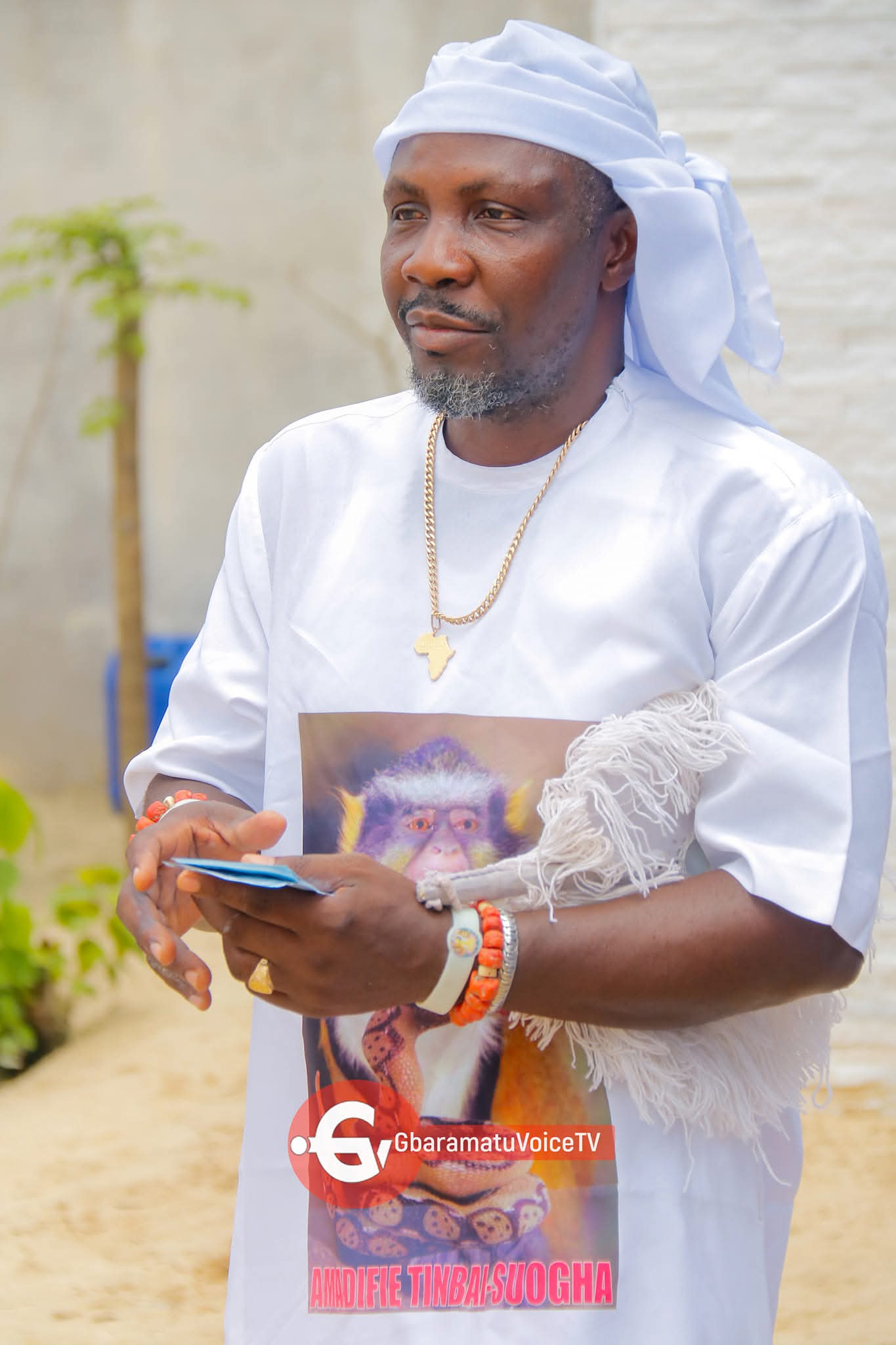
“Tompolo: A Movement of Transformation” – Prof. Binebai,
IduwiniVoice
Renowned Delta-born Professor of Professor of Drama, Dramatic Theory and Criticism, and an Auratorial god, Prof. Benedict Binebai has yet described High Chief Dr. Government Oweizide Ekpemupolo, popularly known as Tompolo as ‘A Movement of Transformation”
In his words, “Tompolo is a multifaceted entity, a veritable institution that defies categorisation, embodying a dynamic force that permeates various aspects of society. As an agency, it represents a powerful catalyst for change, driving progress and innovation in its wake. As a model, Tompolo exemplifies excellence, demonstrating a paradigm of leadership that is at once inspiring and aspirational. His influence extends far beyond the realm of politics, permeating the cultural, religious, and spiritual spheres, where he fosters a sense of unity and shared purpose.
“As a movement, Tompolo is a seismic force, shaking the foundations of complacency and stagnation, and galvanising individuals to strive for a brighter future. His impact is felt across generations, as he empowers young and old alike to become agents of positive change in their communities. In the realm of politics, Tompolo’s leadership has been characterised by a commitment to justice, equality, and the empowerment of the marginalised. His vision for a more equitable society has inspired countless individuals to work towards a common goal, forging a sense of solidarity and shared humanity.
“Culturally, Tompolo has been a luminary, celebrating the rich diversity of Nigerian heritage while promoting a sense of national identity and pride. His influence has helped to preserve traditional values while embracing modernity, creating a unique blend of old and new. Spiritually, Tompolo’s message of hope and redemption has resonated with people from all walks of life, offering a sense of solace and comfort in times of uncertainty. His leadership has embodied a sense of compassion and empathy, inspiring a new generation of spiritual leaders to follow in his footsteps.
“In every sense, Tompolo is a transformative force, a shining example of what can be achieved through dedication, perseverance, and a commitment to the greater good. He is an impeccable movement because his philosophy, his love for society, his cultural activism, his religiosity and leadership grace and skill which is human centered is attracting a large followership, particularly in the Nigerian Delta, where his impact is deeply felt.”
This assertions resonates well with popular sentiments held not just across the Delta of Nigeria but far beyond. Tompolo’s increasing popularity waxes stronger on the pillars of his dedication to homemade ijaw naturality, largeheartedness, stern capability in securing critical national economic assets and the environment, and above all, a detribalized collaborative efforts with other critical stakeholders within and outside the Niger Delta for peace, stability, infrastructural development, and economic process.
(c) IduwiniVoice

